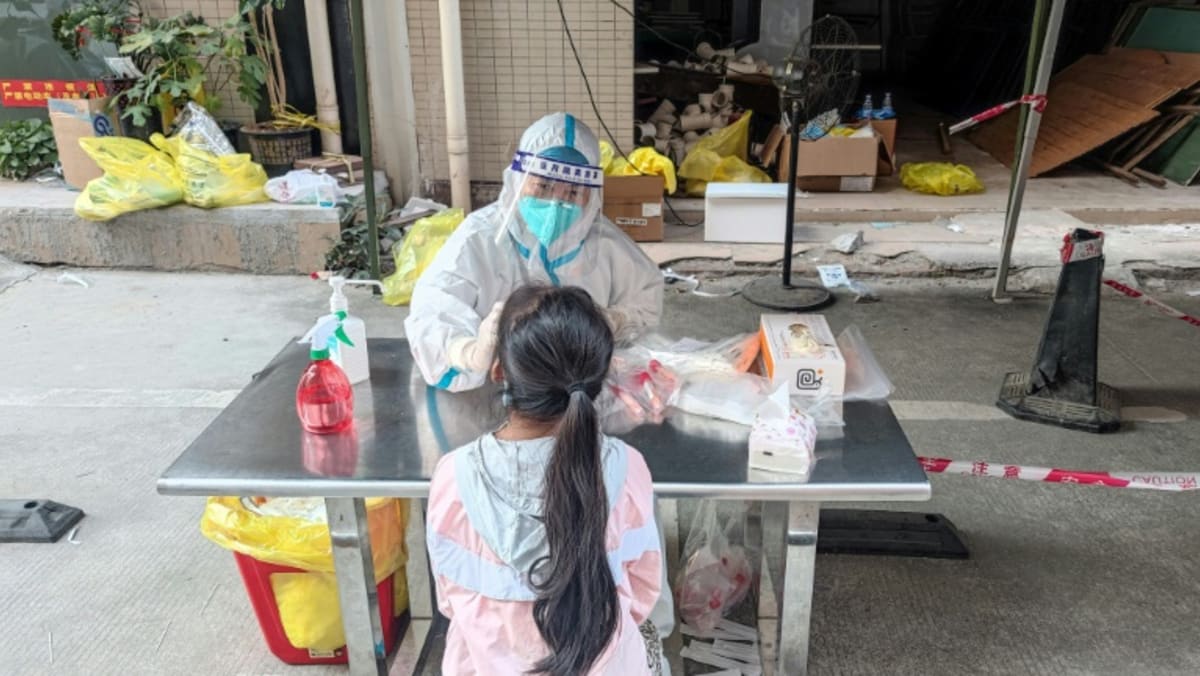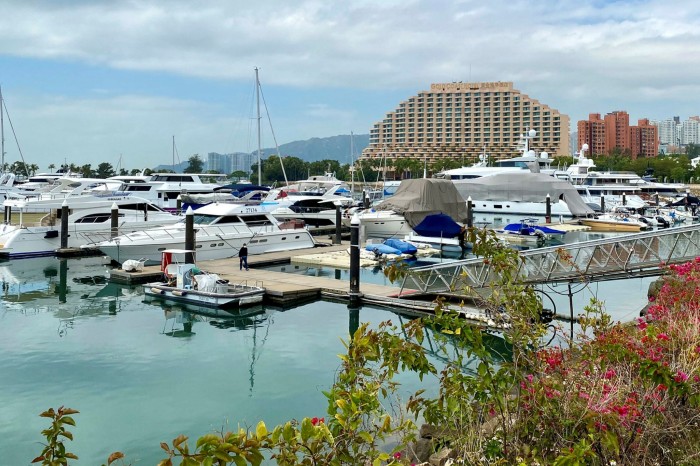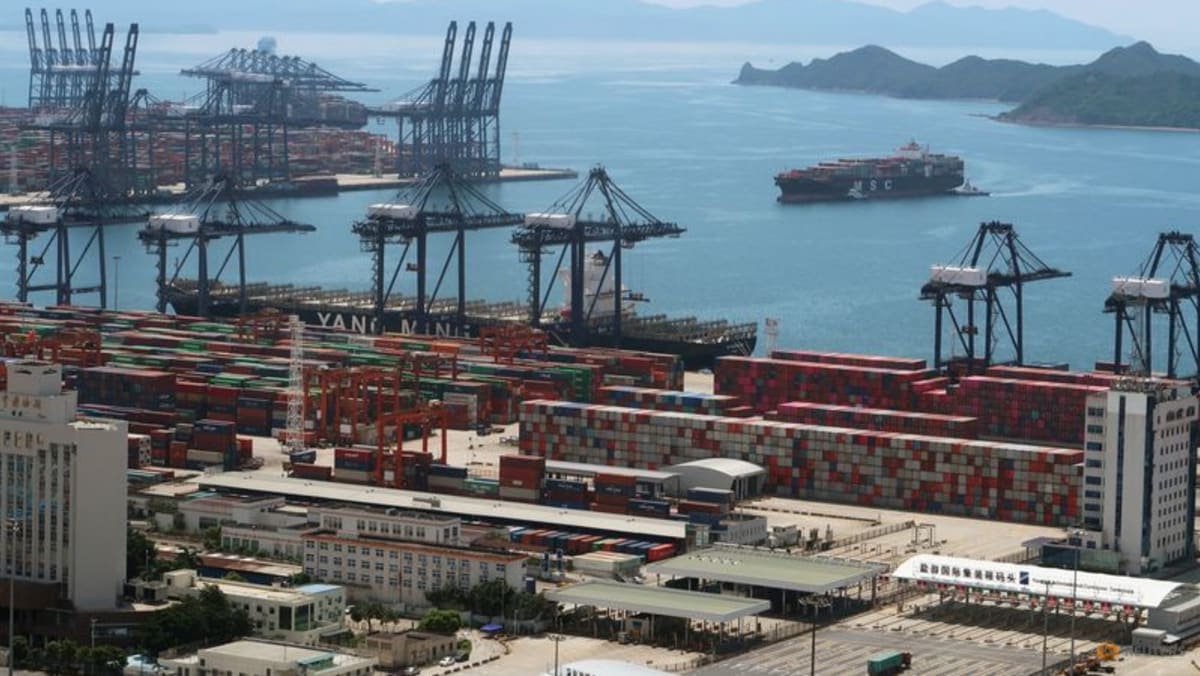
Russia and China have the tendency to learn the worst from each other: tyrants, famines, purges and, now, internet censorship.
When Russia blocked Facebook and limited Twitter this month, many Chinese internet users were surprised. Wait a moment, they said: The Russians could use Facebook and Twitter? Both social media platforms have been banned in China since 2009.
By blocking online platforms, shutting down the last vestige of Russia’s independent media and making it a crime to refer to the fighting in Ukraine as a war, the Kremlin has made it nearly impossible for the Russian people to get independent or international news after its invasion. Most Russians are taking in an alternative reality.
That’s exactly what China has been doing to its 1.4 billion people for years. Nearly all major Western websites are blocked in the country. A generation of Chinese have grown up in a very different information environment from the rest of the world. Mostly, they are left to believe in what Beijing tells them.
“When people ask me how info environment within the Great Firewall is like,” Yaqiu Wang, a researcher at Human Rights Watch in New York, wrote on Twitter about China’s censored internet, “I say, ‘imagine the whole country is one giant Qanon.’”
After years of testing and hesitation, Russia is heading toward harsher internet censorship akin to China’s Great Firewall to better control its people. China’s information dark age could be Russia’s future.
“What is darkness?” asked a user on the Chinese social media platform Weibo. “You can’t speak the truth, and you aren’t allowed to see the truth.”
The two countries have the tendency to learn the worst from each other.
Both the Russians and the Chinese were deeply scarred by disastrous eras under Communism, which produced tyrants like Stalin and Mao, gulags and labor camps, and man-made famines that starved millions to death.
Now, Russia is learning from China how to exert control over its people in the social media age.
The Ukraine crisis has only accelerated a process that started years earlier. In late 2015, China and Russia signed a strategic cooperation agreement on internet governance. A few months later, two of China’s most infamous proponents of censorship traveled to Moscow to preach their ideas of the internet to their Russian counterparts.
“Unlimited freedom can lead to terrorism,” China’s internet czar at the time, Lu Wei, told his Russian audience at a forum. “If borders exist, they exist in cyberspace, too,” said Fang Binxing, known as “father of the Great Firewall.”
China has not always been as tightly controlled as it has become under its top leader, Xi Jinping. In the 1990s and 2000s, investigative journalists broke many stories that led to the downfalls of government officials and to judiciary reforms. The internet and social media made it possible for the public to exchange ideas, debate important topics and pressure the government to respond to their concerns.
There was censorship — at times very strict — and some people went to jail for voicing their political views. But there was a little room for free speech, as there was in Russia for much of President Vladimir V. Putin’s rule.
Then, under Mr. Xi, a new era of control took hold, and it didn’t stop at news media and social media. It reached everything that touches human minds: books and cartoons, films and television, music and classrooms.
The country regulates what textbooks children use, what type of novels writers can publish and what kind of mobile games people can play. And it is all possible because the vast majority of Chinese live in the huge information bubble within the Great Firewall.
The effects are clearly demonstrated in the overwhelmingly pro-Russia, pro-war and pro-Putin online sentiment in China after Russia’s invasion of Ukraine in February. A huge number of Chinese internet users have bought into the disinformation that the Russian and Chinese propaganda machines feed them.
Weibo, China’s Twitter-like social media platform, used to be the place to debate democracy and freedom. Now, the biggest influencers on Weibo are state-owned media outlets like the People’s Daily, the Global Times and China Central Television. Bilibili, a user-generated video site that used to be popular among young gamers and comic and anime fans, is now full of nationalistic young people known as little pinks.
It requires a lot of perseverance for someone with independent thoughts to keep a presence on Weibo. A law scholar I know had set up 343 Weibo accounts between 2009 and 2014, only to see them deleted one by one. Some of them survived only a few minutes. Many people quit social media because they couldn’t stand the abuses by government trolls and little pinks. They also don’t want to risk getting jailed for a post.
The news media has suffered an even greater retreat.
After a huge earthquake struck Sichuan Province in May 2008, many Chinese news outlets sent journalists there despite a ban from the Central Propaganda Department. Their powerful, emotional coverage informed the nation of the tragedy and raised questions about the quality of many school buildings.
That kind of reporting is long gone. When news happens, the Chinese public has no choice but to accept the government’s version of truth.
In January, when the government of the northwestern city of Xi’an imposed a strict lockdown that created chaos and crises not seen since Wuhan two years ago, few news outlets sent journalists to cover it. The only significant reporting the Chinese public got was a first-person blog post written by a former investigative journalist known by her pen name, Jiang Xue.
A few weeks later, when the public was outraged by a video that showed a woman chained in a doorless shack, it had many questions about her, including whether she was a victim of human trafficking. No journalist was able to conduct any independent investigation. Even though the government issued five statements about her case, many people remain skeptical and are worried that they may never know her real identity.
State censors scrutinize books, videos, films, TV series and just about any creative content much more closely before they reach their audience. The goal is to make sure that everyone, especially the young generation, shares the same values.
A well-known Chinese intellectual has written three books that might never be published. Another famous scholar has written five books with no hope of getting them past the censors.
On Chinese TV, hip-hop singers and soccer players wear long sleeves or use makeup to cover their tattoos, and men’s earrings are blurred so they won’t become a “bad influence” on young people.
China still wants to offer some Western entertainment content, but only in a sanitized format. In the sitcom “Friends,” Ross never explained to his parents that he had split from his wife because she was a lesbian living with another woman. “Bohemian Rhapsody,” the Queen biopic, had no scenes involving homosexuality. The Chinese censors put a black dress on the heroine’s nude body in “The Shape of Water.”
Creative talents are now signing contracts that include clauses that make them liable for engaging in immoral behaviors or making politically sensitive comments. Celebrities can have their online presence scrubbed for having a nasty divorce, evading taxes or hiring a prostitute, or for no clear reason at all.
The release of a much-anticipated Chinese thriller was delayed last Christmas because one of the main actors in the movie was accused of taking drugs in 2015. It didn’t matter that the charges against him were dropped. All his shots had to be redone.
I used to doubt that young people would want to watch jingoistic propaganda movies. My generation couldn’t run away from them fast enough, like Russians in the 1980s and 1990s. But I was wrong.
Last year, “The Battle at Lake Changjin,” a government-sponsored movie dramatizing an against-all-odds defeat of the United States during the Korean War, smashed box office records in China.
The most depressing aspect of the information dark age is the collective amnesia.
Young censors are so ignorant about China’s forbidden history that they need to be taught before they start work. Otherwise, they won’t even know to look for references to the 1989 Tiananmen Square crackdown on pro-democracy protests, or to the dissident and Nobel Peace Prize laureate Liu Xiaobo.
Some young people believe it’s their responsibility to report to the authorities on speeches they deem not in line with Communist Party values. Some teachers have lost their jobs or have been punished after their students reported on their “politically incorrect” speech.
Last summer, a local state security bureau in the southeastern province Fujian awarded a college student $1,500 for reporting on an online user spreading “anti-revolutionary information.”
Many Chinese online users see the Great Firewall as necessary to ward off the information and ideological imposition from the West. And after the Kremlin followed suit this month, banning many foreign websites, many in China cheered the decision.
“It’s very necessary to build the Great Firewall,” wrote the Weibo user @icebear_Like_. “Ideology is also a battlefront.”
https://news.google.com/__i/rss/rd/articles/CBMiSmh0dHBzOi8vd3d3Lm55dGltZXMuY29tLzIwMjIvMDMvMTgvYnVzaW5lc3MvY2hpbmFzLXJ1c3NpYS1pbmZvcm1hdGlvbi5odG1s0gEA?oc=5
2022-03-19 02:32:00Z
CAIiEKFCHRuBSOKyhxCpQgJVOd8qFwgEKg8IACoHCAowjuuKAzCWrzwwt4QY



